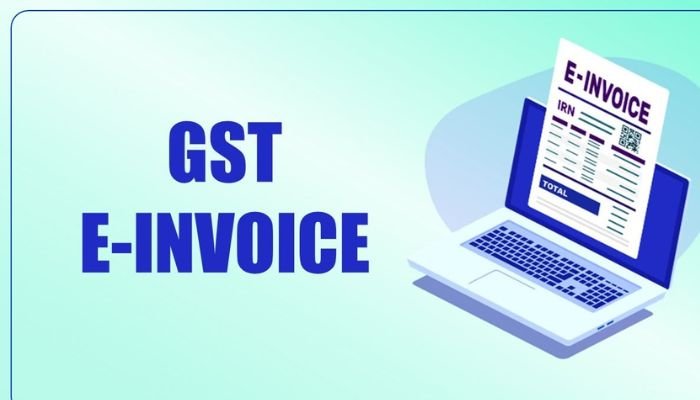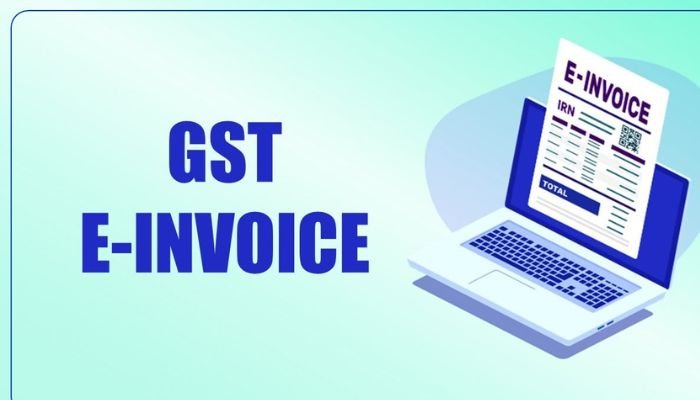In a bid to modernize tax processes, reduce compliance burdens, and counter tax evasion, the Central Board of Indirect Taxes and Customs (CBIC) has rolled out a series of measures aimed at enforcing the mandatory issuance of e-invoices. This initiative, detailed in the Instructions dated October 18, 2023, targets a specific class of taxpayers who are legally obligated to issue e-invoices.
| Table Section |
| 1. Introduction |
| 2. Understanding the Mandate |
| 3. Declaration Requirements and Exemptions |
| 4. Analyzing Compliance Discrepancies |
| 5. Recommended Actions by Field Formations |
| 6. FAQ |
| 7. Conclusion |
Understanding the Mandate
The latest phase, introduced through notification No. 10/2023-Central Tax dated 10-05-2023, mandates e-invoicing for taxpayers with an annual aggregate turnover exceeding Rupees Five Crore, effective from August 1, 2023. The overarching goal is not just automation but also enhanced tax management, aiming to curtail fraudulent activities such as carousel fraud and false invoicing.
Declaration Requirements and Exemptions
To ensure transparency, Clause (s) has been integrated into Rule 46 of the CGST Rules, requiring taxpayers exceeding the prescribed turnover but exempt from e-invoicing to declare their status on invoices. Moreover, a new portal functionality allows eligible taxpayers to make a self-declaration regarding their exemption category.

Analyzing Compliance Discrepancies
Despite these initiatives, a recent statistical analysis for August 2023 indicates a substantial gap between eligible taxpayers and the actual issuance of e-invoices. This has prompted the CBIC to instruct field formations to investigate and address compliance issues promptly.
Recommended Actions by Field Formations
To bridge this compliance gap, the CBIC outlines a series of actions for field formations:
1. Investigation of Reasons:
Authorities are directed to investigate reasons for non-issuance and guide taxpayers claiming exemption or turnover limits on the declaration process through the portal.
2. Informing Taxpayers of Consequences:
Tax authorities are urged to communicate the consequences of non-compliance, emphasizing the invalidation of invoices issued outside the e-invoicing system. Penalties under the CGST Act are to be highlighted.
3. Initiating Penalties for Non-Compliance:
Continuous non-compliance, especially by high-turnover taxpayers, should trigger appropriate penal action under the CGST Act and Rules.
4. Reporting Systemic Issues:
Any systemic issues hindering e-invoice issuance are to be reported promptly to GSTN/NIC for remedial action.
Conclusion
The CBIC calls for the close monitoring of e-invoicing implementation by Principal Chief Commissioner/Chief Commissioner of CGST Zones. This initiative's success hinges on the collaboration between tax authorities and businesses, fostering transparency, efficiency, and compliance in the tax landscape. As the compliance journey unfolds, staying informed and proactive will be imperative for both tax authorities and the business community. Embracing these changes not only ensures compliance but also positions businesses to thrive in an increasingly digitized and regulated environment.
कर प्रक्रियाओं को आधुनिक बनाने, अनुपालन बोझ को कम करने और कर चोरी का मुकाबला करने के लिए, केंद्रीय अप्रत्यक्ष कर और सीमा शुल्क बोर्ड (सीबीआईसी) ने ई-चालान जारी करने को अनिवार्य बनाने के उद्देश्य से उपायों की एक श्रृंखला शुरू की है। 18 अक्टूबर, 2023 के निर्देशों में विस्तृत यह पहल करदाताओं के एक विशिष्ट वर्ग को लक्षित करती है जो कानूनी रूप से ई-चालान जारी करने के लिए बाध्य हैं।
| खंड |
| 1. परिचय |
| 2. जनरेटिंग करने का आदिकार |
| 3. घोषणा आवश्यकताएँ और छूटें |
| 4. अनुपालन असंगतियों का विश्लेषण |
| 5. क्षेत्र निर्धारण द्वारा सुझावित क्रियाएं |
| 6. पूछे जाने वाले प्रश्न(FAQS) |
| 7. निष्कर्ष |
जनादेश को समझना
नवीनतम चरण, अधिसूचना संख्या 10/2023-केंद्रीय कर दिनांक 10-05-2023 के माध्यम से शुरू किया गया, 1 अगस्त, 2023 से प्रभावी, पांच करोड़ रुपये से अधिक वार्षिक कुल कारोबार वाले करदाताओं के लिए ई-चालान अनिवार्य है। न केवल स्वचालन बल्कि कर प्रबंधन को भी बढ़ाया, जिसका लक्ष्य हिंडोला धोखाधड़ी और झूठे चालान जैसी धोखाधड़ी गतिविधियों पर अंकुश लगाना है।
घोषणा आवश्यकताएँ और छूटें
पारदर्शिता सुनिश्चित करने के लिए, खंड को सीजीएसटी नियमों के नियम 46 में एकीकृत किया गया है, जिसके तहत निर्धारित टर्नओवर से अधिक करदाताओं को चालान पर अपनी स्थिति घोषित करने के लिए ई-चालान से छूट की आवश्यकता होती है। इसके अलावा, एक नई पोर्टल कार्यक्षमता पात्र करदाताओं को उनकी छूट श्रेणी के संबंध में स्व-घोषणा करने की अनुमति देती है।

अनुपालन विसंगतियों का विश्लेषण
इन पहलों के बावजूद, अगस्त 2023 के लिए हालिया सांख्यिकीय विश्लेषण पात्र करदाताओं और ई-चालान जारी करने के वास्तविक मुद्दे के बीच पर्याप्त अंतर का संकेत देता है। इसने सीबीआईसी को अनुपालन मुद्दों की तुरंत जांच करने और समाधान करने के लिए क्षेत्रीय संरचनाओं को निर्देश देने के लिए प्रेरित किया है।
फ़ील्ड संरचनाओं द्वारा अनुशंसित कार्रवाइयां
इस अनुपालन अंतर को पाटने के लिए, सीबीआईसी ने क्षेत्रीय संरचनाओं के लिए कार्रवाइयों की एक श्रृंखला की रूपरेखा तैयार की है:
1. कारणों की जांच:
अधिकारियों को गैर-जारी करने के कारणों की जांच करने और पोर्टल के माध्यम से घोषणा प्रक्रिया पर छूट या टर्नओवर सीमा का दावा करने वाले करदाताओं का मार्गदर्शन करने का निर्देश दिया जाता है।
2. करदाताओं को परिणामों की सूचना देना:
कर अधिकारियों से आग्रह किया जाता है कि वे ई-चालान प्रणाली के बाहर जारी किए गए चालानों को अमान्य करने पर जोर देते हुए गैर-अनुपालन के परिणामों के बारे में बताएं। सीजीएसटी अधिनियम के तहत दंड पर प्रकाश डाला जाना चाहिए।
3. गैर-अनुपालन के लिए दंड शुरू करना:
लगातार गैर-अनुपालन, विशेष रूप से उच्च टर्नओवर करदाताओं द्वारा, सीजीएसटी अधिनियम और नियमों के तहत उचित दंडात्मक कार्रवाई शुरू होनी चाहिए।
4. प्रणालीगत मुद्दों की रिपोर्टिंग:
ई-चालान जारी करने में बाधा डालने वाले किसी भी प्रणालीगत मुद्दे को उपचारात्मक कार्रवाई के लिए तुरंत जीएसटीएन/एनआईसी को सूचित किया जाना चाहिए।
पूछे जाने वाले प्रश्न(FAQS)
Q1: ई-चालान जारी करने के संबंध में सीबीआईसी द्वारा हाल ही में क्या कार्रवाई की गई है?
A1: केंद्रीय अप्रत्यक्ष कर और सीमा शुल्क बोर्ड (CBIC) ने करदाताओं के एक विशिष्ट वर्ग द्वारा ई-चालान जारी न करने को संबोधित करते हुए 18 अक्टूबर, 2023 को निर्देश जारी किए हैं, जिन्हें कानूनी प्रावधानों के तहत ऐसा करना अनिवार्य है।
Q2: इस कार्रवाई से कौन करदाता प्रभावित होंगे?
ए2: अधिसूचना संख्या 10/2023-केंद्रीय कर के माध्यम से छठे चरण में पेश किया गया हालिया शासनादेश, पांच करोड़ रुपये से अधिक के वार्षिक कुल कारोबार वाले करदाताओं को प्रभावित करता है, जिससे 1 अगस्त, 2023 से उनके लिए ई-चालान अनिवार्य हो जाता है।
Q3: ई-चालान के अनिवार्य कार्यान्वयन के पीछे क्या उद्देश्य है?
A3: प्राथमिक उद्देश्य कर प्रक्रियाओं को स्वचालित करना, अनुपालन बोझ को कम करना और कर प्रबंधन को बढ़ाना है। इस पहल का उद्देश्य हिंडोला धोखाधड़ी, गलत चालान और कर चोरी जैसी धोखाधड़ी प्रथाओं पर अंकुश लगाना है।
Q4: क्या करदाताओं को ई-चालान से छूट के लिए कोई घोषणा की आवश्यकता है?
A4: हां, खंड को सीजीएसटी नियमों के नियम 46 में एकीकृत किया गया है, जिससे करदाताओं को चालान पर अपनी स्थिति घोषित करने के लिए ई-चालान से छूट की आवश्यकता होती है। इस स्व-घोषणा को सुविधाजनक बनाने के लिए एक पोर्टल कार्यक्षमता शुरू की गई है।
Q5: अनुपालन सुनिश्चित करने के लिए फ़ील्ड संरचनाओं के लिए किन कार्रवाइयों की अनुशंसा की जाती है?
A5: फील्ड संरचनाओं को गैर-जारी करने के कारणों की जांच करने, करदाताओं को परिणामों के बारे में सूचित करने, गैर-अनुपालन के लिए दंड शुरू करने और ई-चालान जारी करने में बाधा डालने वाले किसी भी प्रणालीगत मुद्दे की रिपोर्ट जीएसटीएन/एनआईसी को करने की सलाह दी जाती है।
Q6: छूट या टर्नओवर सीमा का दावा करने वाले करदाता अपनी स्थिति कैसे घोषित कर सकते हैं?
ए6: करदाता पोर्टल पर नई शुरू की गई कार्यक्षमता के माध्यम से अपनी छूट श्रेणी के संबंध में स्व-घोषणा कर सकते हैं।
Q7: ई-चालान नियमों का अनुपालन न करने के परिणाम क्या हैं?
ए7: सीजीएसटी नियमों के नियम 48 के उप-नियम (5) के अनुसार, ई-चालान प्रणाली के बाहर जारी किए गए चालान अमान्य माने जाते हैं। अनुपालन करने में विफल रहने वाले करदाताओं को सीजीएसटी अधिनियम की प्रासंगिक धाराओं के तहत दंड का सामना करना पड़ सकता है।
प्रश्न 8: पचास करोड़ रुपये से अधिक वार्षिक कुल कारोबार वाले करदाताओं पर ध्यान क्यों दिया जा रहा है?
A8: अप्रैल 2021 से ई-चालान के अनिवार्य कार्यान्वयन के बाद से पर्याप्त समय बीतने पर विचार करते हुए, उच्च टर्नओवर वाले करदाताओं को अनुपालन प्रवर्तन के लिए प्राथमिकता के रूप में पहचाना गया है।
प्रश्न9: इन परिवर्तनों के दौरान व्यवसाय कैसे सूचित और सक्रिय रह सकते हैं?
ए9: नवीनतम नियमों के बारे में सूचित रहना और ई-चालान परिवर्तनों को सक्रिय रूप से अपनाना व्यवसायों के लिए अनुपालन सुनिश्चित करने और विकसित होते डिजिटल और विनियमित वातावरण में फलने-फूलने के लिए अनिवार्य है।
प्रश्न10: करदाताओं को ई-चालान अनुपालन के संबंध में अतिरिक्त जानकारी या सहायता कहां मिल सकती है?
ए10: करदाता मार्गदर्शन के लिए अपने स्थानीय कर अधिकारियों तक पहुंच सकते हैं और ई-चालान अनुपालन से संबंधित अपडेट और सहायता के लिए आधिकारिक जीएसटीएन/एनआईसी प्लेटफार्मों का संदर्भ ले सकते हैं।
निष्कर्ष
सीबीआईसी सीजीएसटी जोन के प्रधान मुख्य आयुक्त/मुख्य आयुक्त द्वारा ई-चालान कार्यान्वयन की कड़ी निगरानी का आह्वान करती है। इस पहल की सफलता कर अधिकारियों और व्यवसायों के बीच सहयोग, कर परिदृश्य में पारदर्शिता, दक्षता और अनुपालन को बढ़ावा देने पर निर्भर करती है। जैसे-जैसे अनुपालन यात्रा आगे बढ़ती है, कर अधिकारियों और व्यापारिक समुदाय दोनों के लिए सूचित और सक्रिय रहना अनिवार्य हो जाएगा। इन परिवर्तनों को अपनाने से न केवल अनुपालन सुनिश्चित होता है बल्कि व्यवसायों को तेजी से डिजिटलीकृत और विनियमित वातावरण में फलने-फूलने की स्थिति भी मिलती है।



